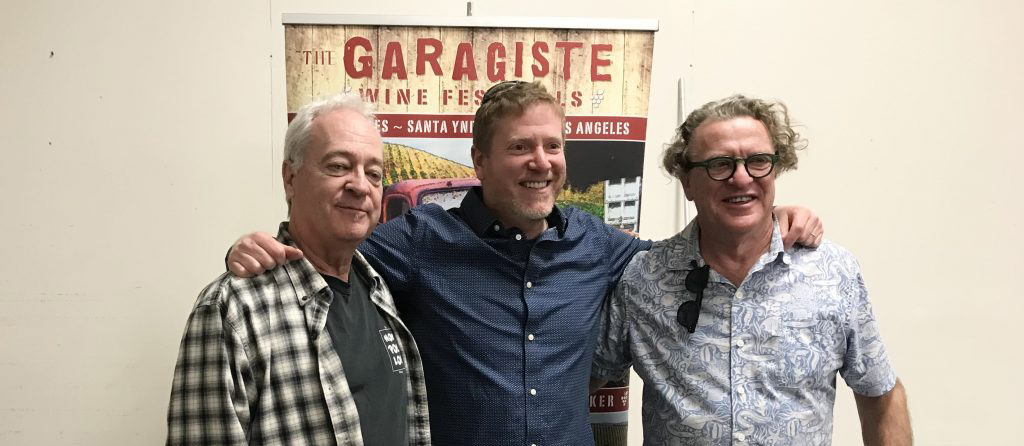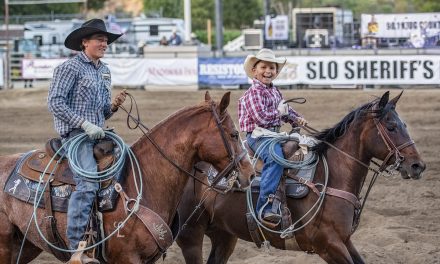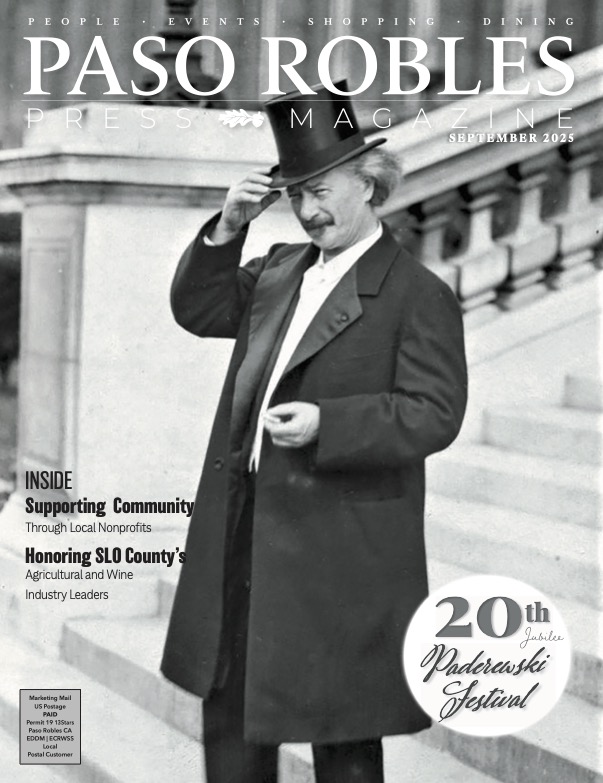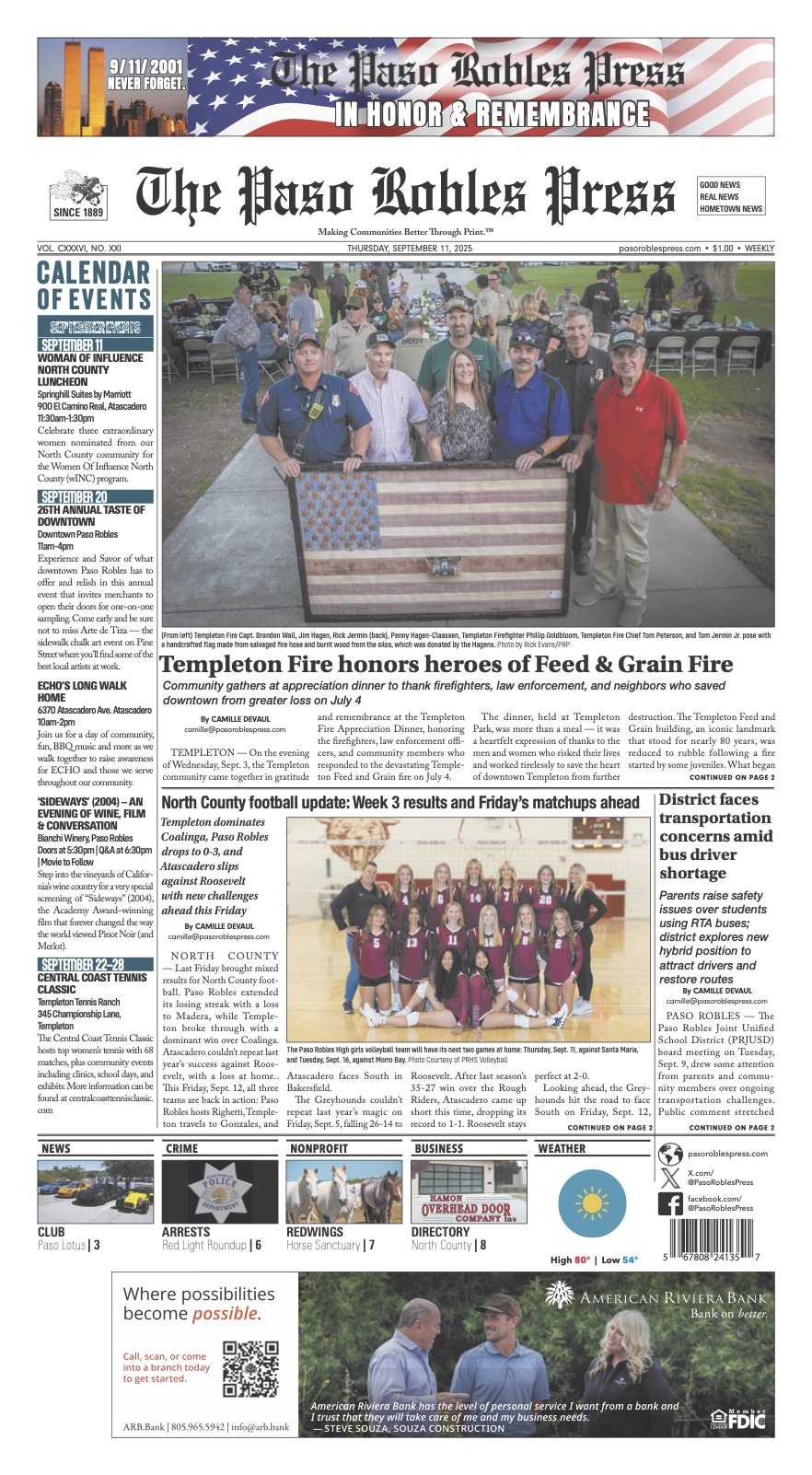Re-emerging with a bang after a year in quarantine, the Paso-based Garagiste Wine Festival returned to its home base to mark its tenth anniversary.
The unique wine festival, a runaway success in the second decade of the 21st century, resumed its celebration of the artisan winemakers in its birthplace of Paso Robles, November 12-14, featuring 50 small-production wineries from all over California although mostly from the Central Coast.
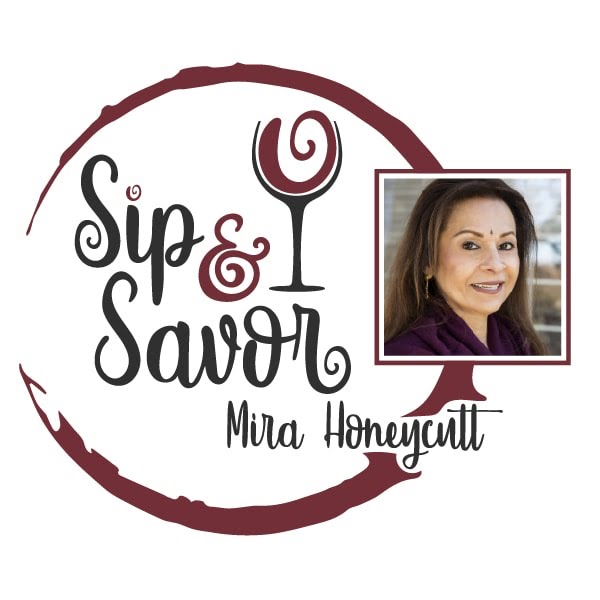
“It’s good to see everyone; it’s been too long,” commented Bill Powell, the owner of Powell Mountain Cellars. “I’m a winemaker. I want to share. And I can’t do Zoom.” His confession came at the Friday night Rare & Reserve Tasting. He was among two dozen winemakers at the Pavilion on the Lake in Atascadero, the kick-off event attended by some 150 Garagiste fans.
While most wines offered were recent vintages, there were a few with at least ten years of age on them. Powell poured the 2010 cabernet sauvignon, his very first vintage, while Jenni Abascal, co-owner of Vines on the Marycrest, offered her 2009 vintages of syrah and zinfandel, two wines that were poured at the very first Garagiste festival in 2011.
What made some of the wines rare was their limited production. Such as Kaleidos Winery’s Praying Mantis (a mere 23 cases produced) and Dusty Nabor’s 2018 grenache from his personal reserve collection. Jason Bushong of Bushong Vintage Company brought along 2020 barrel samples of zinfandel and a red blend of grenache, tanner and mourvedre.
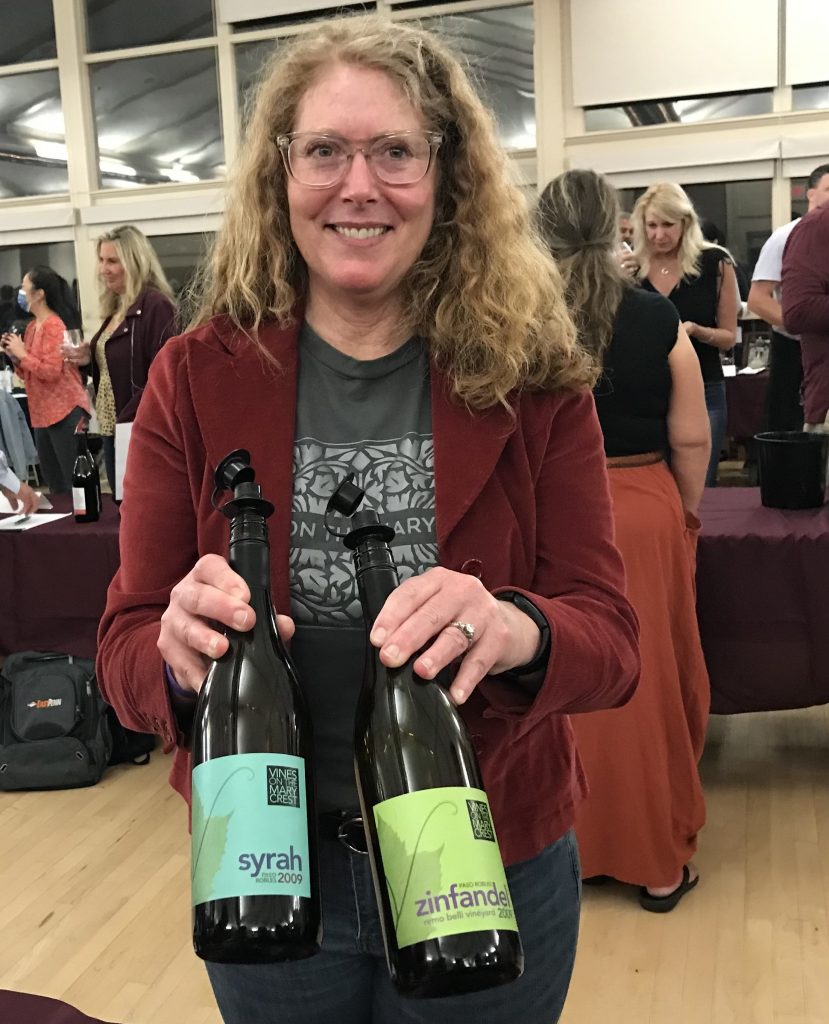
Anita Sahi, on the other hand, quipped: “We are not rare or reserve — but we are pouring two unreleased wines.” The co-founder of Copia Vineyards offered two versions of the 2019 The Pursuit, syrahs from Santa Barbara County’s two different sources – the John Sebastiano and Bien Nacido vineyards.
Saturday morning activities began at the Paso Robles Event Center with a seminar hosted by fest co-founder Stewart McLennan, who welcomed guest speaker Jason Haas, managing director of Tablas Creek Vineyards.
“Diversity of Paso is what draws people here,” said Haas commenting on the seminar’s topic, The Past & Future of Winemaking in Paso, while discussing the growth of Rhône-style wines. “We chose to do Rhône-style varieties when not a single acre was planted here in Paso.”
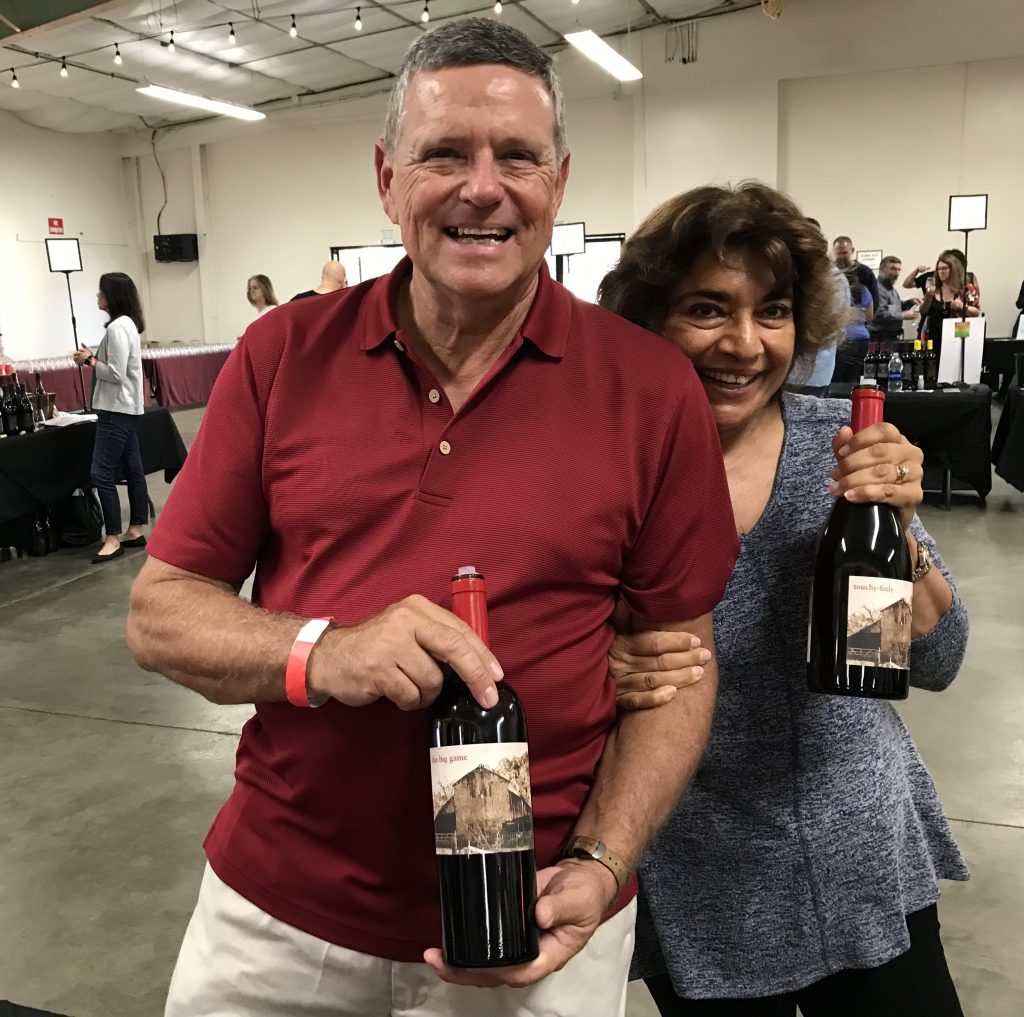
While conducting a tasting of four Tablas Creek wines, Haas reflected on his family history. Tablas Creek, a Franco-American joint-venture, was founded in 1989 by his father, the late Robert Haas, in collaboration with the Perrin family of Château de Beaucastel in France’s southern Rhône region of Châteauneuf-du-Pape.
Although not a garagiste winery, Tablas Creek has made a significant contribution to Paso wineries big and small. The team revolutionized planting on the Central Coast by importing clones of Rhône style grapes, a total of 19 varieties to date. The winery, which endured a long quarantine process to bring original cuttings from France, eventually decided to make those varieties available to other wineries. “We made them available to people. We didn’t expect [the growth and popularity of Rhône wines in California]. It surprised Dad.”
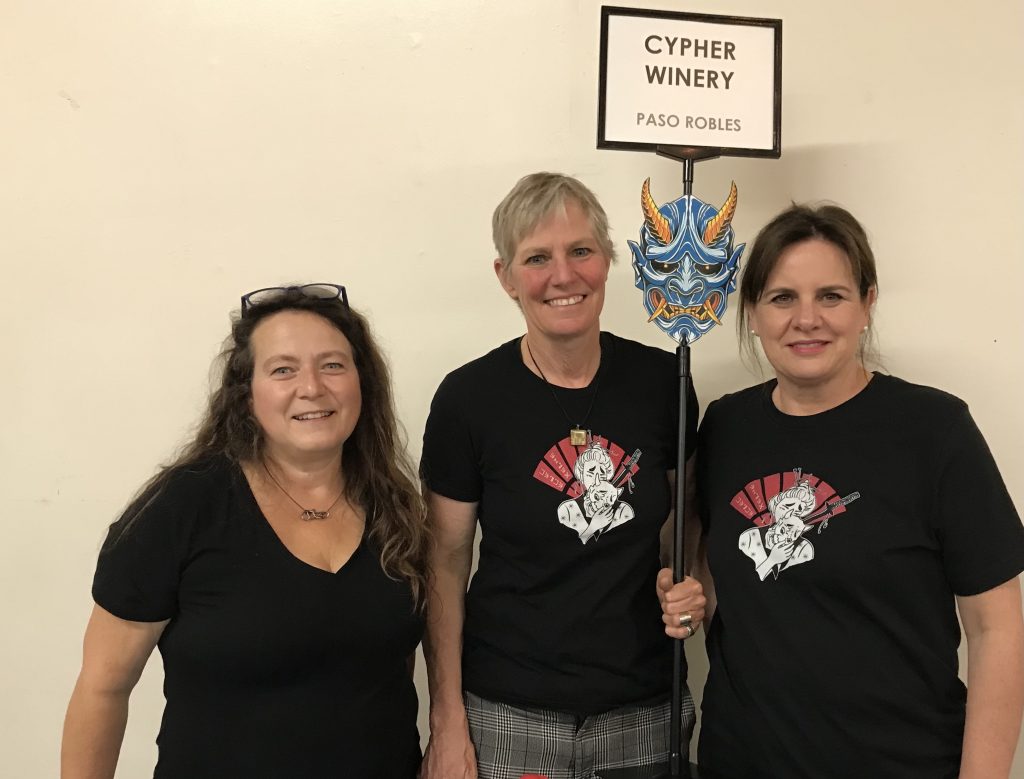
The Grand Tasting following the seminar was staged indoors in a cavernous hall that had plenty of air ventilation with a few tasting tables and seating outdoors. Following Covid protocols, the
tables were spread out at more than six feet apart for greater social distancing. While an indoor mask mandate was signposted, it was challenging for attendees to keep masks on with all the wine tasting going on.
Rhône-style blends and cabernet sauvignon dominated the afternoon, with several winemakers blending both these varieties. The Farm Winery noted for its “Bordeaux meets Rhône” is among the small wineries with a mere 800 annual-case production. Crafted by owner Jim Madsen and his wine making partner Santiago Achaval, the blends are powerful yet elegant, such as The Big Game, a layered and complex blend of cabernet sauvignon, syrah and petite verdot.
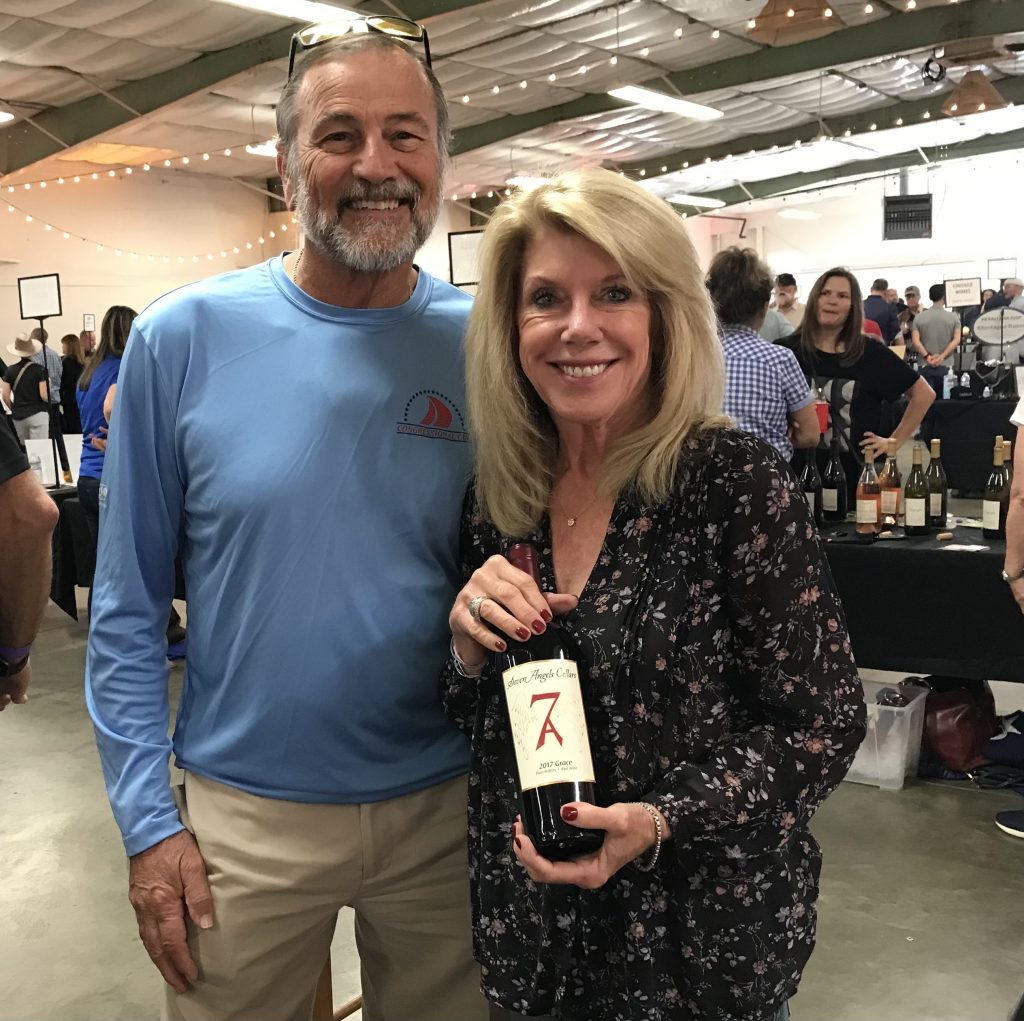
“We tend to be pretty low in alcohol for Paso,” noted Madsen of his choice to keep alcohol level at 14 percent.
This is one festival where you can experience interesting blends and winemaking styles. Making its debut was Steinbeck’s 2019 Blanc de Blanc, a refreshing sparkler of chardonnay with a splash of syrah, and Josh Beckett’s recently launched Thibido Winery’s 2020 Just Because, a carbonic syrah.
Among the eclectic blends were Cypher’s 2018 ZinPunk, a muscle-flexing blend of zinfandel, petite sirah and tannat — “We don’t mess around,” mused Susan “SAM” Mahler, Cypher’s owner/winemaker.
More bold libations came from Seven Angel Cellars such as the garnet-hued 2017 Confession blend of Sangiovese with cabernet sauvignon, merlot and syrah; Hayseed & Housdon’s 2019 La Macha, a heady carousel of tempranillo, graciano, mataro and garnacha; and Quench & Temper’s 2019 La Cantera syrah and graciano blend. Then there were the all-Spanish indulgences from Diablo Paso.
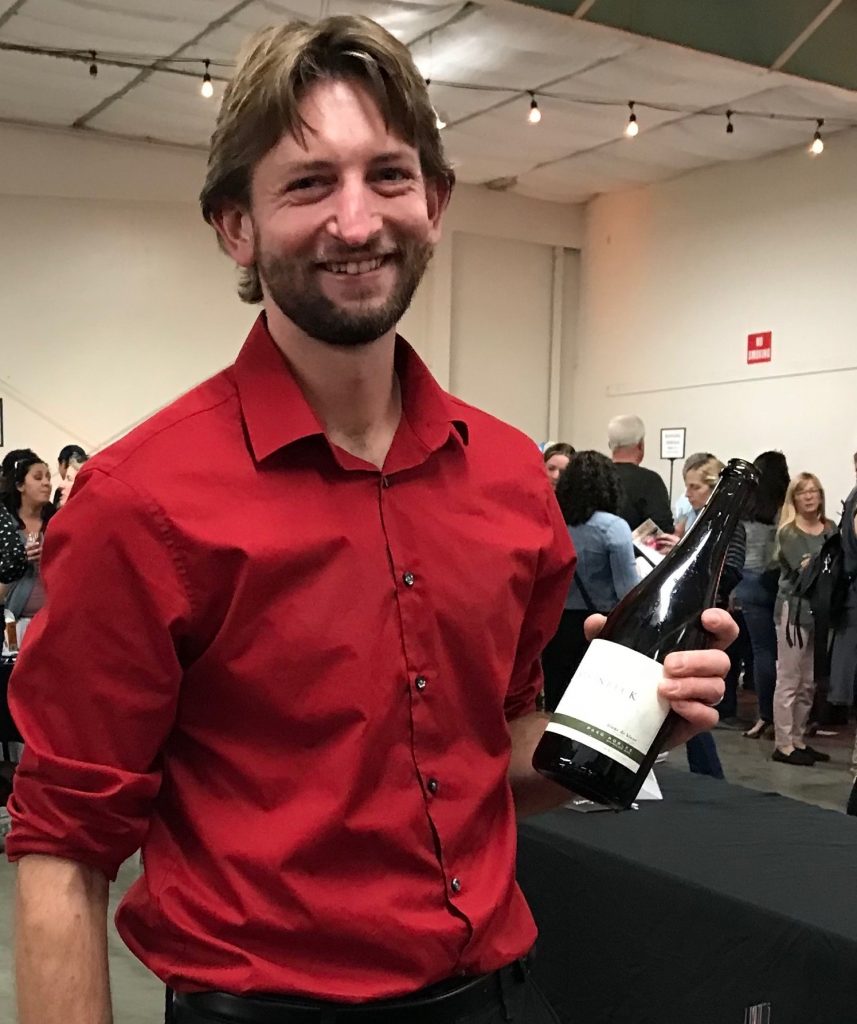
There were also not-so-common offerings of whites such as torrontes from Arianna Wines, vermentino from MEA Wine, arneis from Deno Wines and picpoul blanc from Vigo Cellars. Among the reds, there were interesting tannats from Volatus, Pulchella and MCV Wines; cabernet francs from Cloak & Dagger and Seashell Cellars; and malbecs from RF Wines and Torch Cellars.
The festival, which shines a light on small, often undiscovered winemakers, was founded by McLennan and Doug Minnick, individuals from the entertainment business and the minds behind this small-lot movement. Neither of them a winemaker at the time, each has evolved to craft his own wines — McLennan making Sharpei Moon in Paso while Minnick produces Hoi Polloi in Newhall, California.
For McLennan the light bulb went on when he came across a piece in Robert M. Parker’s “Wine Advocate” journal where the wine guru highlighted a few of Bordeaux’s incipient winemakers producing wine in garages, thus the French name garagiste, meant as a put-down but embraced by these winemakers sufficiently to become a buzzword.
“We are small and focused,” McLennan told me. ”So, the festival is a huge benefit for the consumers as they get to meet the winemakers and have discussions with them. We pride ourselves in that.”
Minnick emphasized the uniqueness of the festival. While most other wine festivals celebrate a region or grape varieties, the Garagiste festival, he noted, is focused on small wineries. The maverick winemakers feel a sense of freedom crafting different styles of wines. “There is a wide range of grapes and wines because winemakers’ production is small,” Minnick commented. “They are not constrained by the needs of distributors. There is so much opportunity for discovery.”
The Garagiste is a non-profit foundation and its Festival Scholarship Fund supports deserving students at Cal Poly’s Wine & Viticulture Department, several of whom have graduated to careers in the wine industry.

